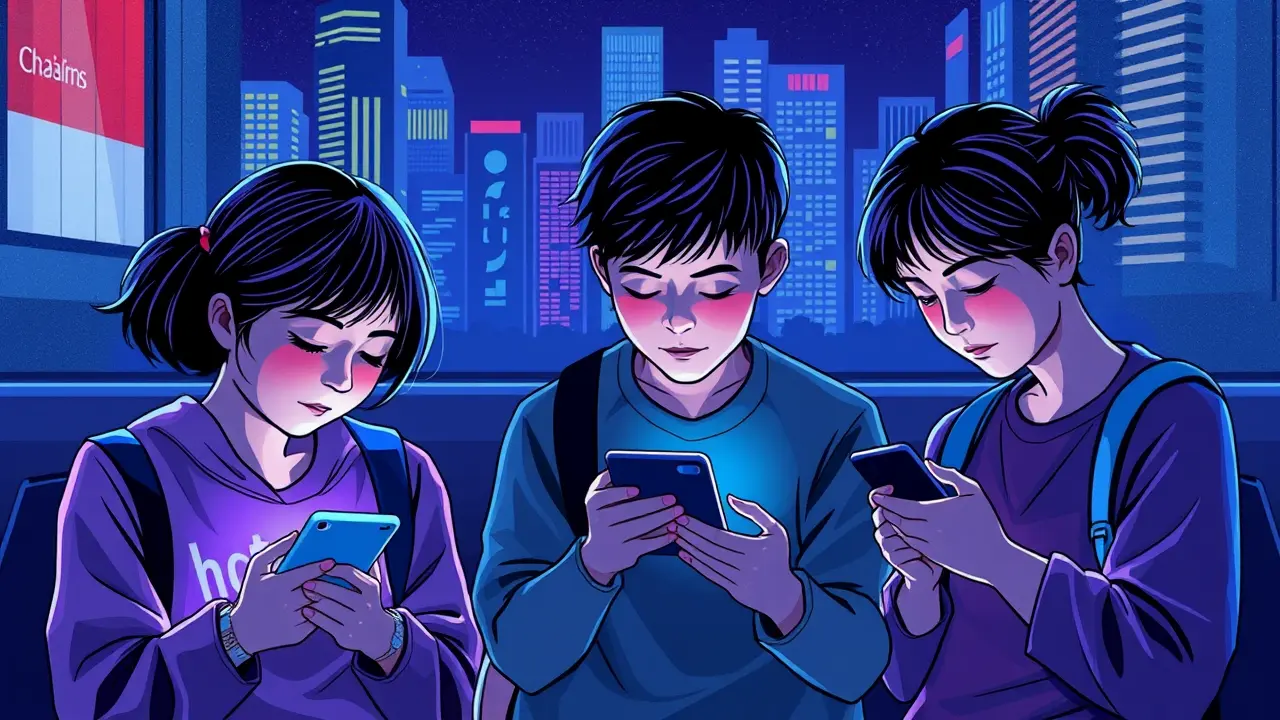
OthereducationOnline Learning
Hong Kong's Youth Face Growing Screen Time Problem
LA
Laura Bennett
1 day ago7 min read
You see it everywhere you look in Hong Kong—on the MTR, in cha chaan tengs, in parks where children used to chase balls—the eerie glow of screens has become the backdrop to childhood itself, and if you stop to talk to parents, teachers, or the young people themselves, a more complex, human story emerges than any stark statistic could ever tell. According to research by the NGO Look Up Hong Kong, a staggering pivot in daily life is underway: more than half of our children aged 6 to 10 already own a smartphone, a figure that skyrockets to a near-ubiquitous 98 percent for those aged 14 and above, a number that feels less like data and more like a quiet, collective sigh from a generation growing up with a parallel digital universe in their pockets.I spoke with a primary school teacher in Kowloon Tong, Ms. Chen, who described the subtle shift in her classroom over the last five years; where once she battled fidgeting and whispered conversations, she now competes with the phantom vibrations of silenced phones and the distant gaze of a student mentally scrolling through TikTok, a challenge she never trained for in her two decades of teaching.A 2023 survey by the Hong Kong Young Women’s Christian Association quantified this immersion, finding that children now spend an average of 32 hours per week on electronic devices purely for leisure—that’s essentially a second full-time job for a teenager, a commitment to a world of algorithms and influencers that eclipses time for family dinners, homework, or simply staring at the clouds. The Look Up Hong Kong survey further peeled back the layers, revealing that this isn't merely about entertainment; it's about social survival, with many teens confessing that their entire social circle exists within group chats and online games, and the fear of missing out, of being disconnected from the digital heartbeat of their peers, is a more potent anxiety than any exam.This phenomenon isn't happening in a vacuum; it's woven into the fabric of modern Hong Kong life, where high-pressure academic systems push students toward burnout, and cramped living conditions in the city's notorious nano-apartments often make the infinite expanse of the online world a more appealing escape than a physically confined reality. I met a 16-year-old named Leo in a Mong Kok café, who told me, while his phone buzzed incessantly with notifications from a group chat discussing the latest K-pop comeback, that his phone is both his 'best friend and his worst enemy'—it's his portal to his friends, his source of news, and his creative outlet for editing videos, but it's also the reason he often lies awake at 2 a.m. , his mind racing from the day's digital stimuli, a sentiment echoed by countless others in his generation.The consequences ripple outward, touching everything from childhood obesity rates, as active play is supplanted by sedentary scrolling, to mental health, with local psychologists noting a sharp rise in cases of adolescent anxiety and attention disorders linked to compulsive device use, creating a silent public health crisis that lacks the dramatic urgency of a pandemic but may prove just as transformative for the city's future. Parents are caught in a difficult bind, as a shop owner in Sheung Wan explained to me; he gave his 10-year-old daughter a phone for safety, so she could contact him after school, but now he finds himself in a constant, wearying negotiation over screen time limits, feeling like a regulator of a force he doesn't fully understand, a common story in households across the socioeconomic spectrum.This is a global story, of course, but it has a uniquely Hong Kong intensity, shaped by the city's hyper-connected, competitive, and densely populated environment, where the drive to succeed and the fear of falling behind can make digital detachment feel like a luxury, or even a liability. The path forward isn't about demonizing technology, but about rediscovering balance, a concept that feels almost radical in today's 'always-on' culture, and it will require a collective effort—from schools implementing digital literacy that teaches mindful usage, not just technical skills, to urban planners creating more inviting public spaces that can compete with the allure of the screen, and most importantly, from families having open, non-judgmental conversations about the role these devices play in their lives and their relationships. The real question Hong Kong faces is not whether it can curb screen time, but whether it can help its youth build an identity that is rich and fulfilling enough offline that the digital world becomes a tool for enhancement, not a substitute for living.
#editorial picks news
#screen addiction
#children
#smartphones
#Hong Kong
#digital health
#parenting
#education policy
Stay Informed. Act Smarter.
Get weekly highlights, major headlines, and expert insights — then put your knowledge to work in our live prediction markets.
Related News
© 2025 Outpoll Service LTD. All rights reserved.











